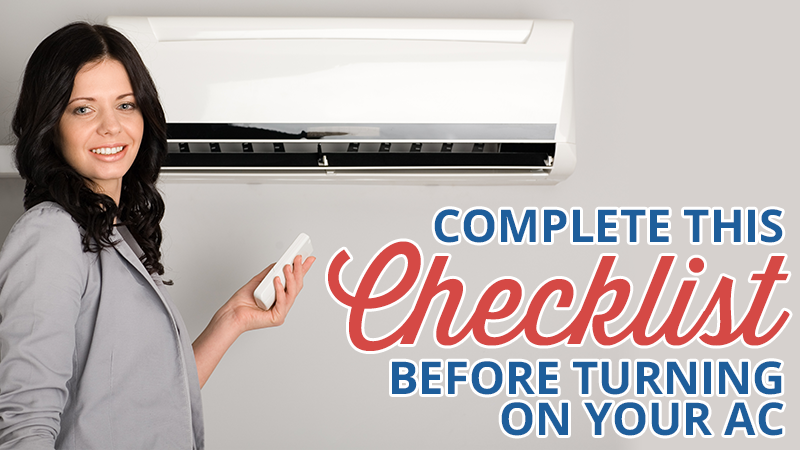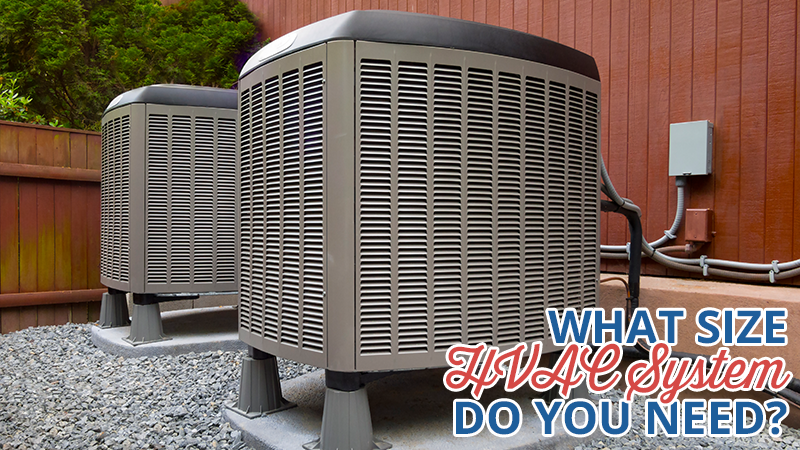
by RevContent | Apr 21, 2016 | Uncategorized
With warmer weather settling in and spring just around the corner, it might soon be time to fire up your AC system. Beat the heat and give Metro Comfort Systems a call for all of your HVAC needs or AC repair. To keep you cool all spring and summer long, we have listed nine tips to keep your air conditioning running strong. Upgrade to a Digital Thermostat Digital thermostats are more efficient than analog thermostats. Manual adjustments on an analog thermostat cause unnecessary wear and tear on your air conditioning system. Regularly Change Your Filter Regular filter changes — every one to three months — are a simple way to keep your air conditioning running at maximum efficiency. Check the filter monthly to start off, and replace it as needed to figure out how often it needs to be changed. Schedule Annual Service You want to make sure your air conditioning is working before the hottest days of the year come around, so schedule annual maintenance with us and receive a 10 percent discount on parts. Don’t Plant Too Close to Your AC Unit The unit needs room to breathe, so don’t let plants grow too close to it. Fences and covers directly on the unit can also be harmful to its air circulation. Keep Your Outdoor Unit Clean Spray down your outdoor air conditioning unit with a garden house to clean out any dirt or grime buildup that could be slowing the unit down. Keep Returns and Vents Clear Vents or returns closed off by furniture or other large objects can harm your air conditioning’s efficiency. Try rearranging your furniture for something different and keep...

by RevContent | Apr 7, 2016 | Uncategorized
The weather is heating up, and air conditioners across the country will soon be working to fight against it. Before you turn yours on after its winter break, work through this 5-step checklist for HVAC maintenance. 1. Check the Condensing Fan All of the air that runs through your AC system begins at the condensing fans, so you should follow suit in your checklist. For condensers on the ground, the vegetation that was cut to clear space for it may have crept back around it over the past year. If it has, make sure to give it a trim. If you feel comfortable looking deeper into the fan, you can inspect the interior for signs of fungus or mold that have a tendency to grow around the relatively damp and warm environment around the coils and wiring. 2. Inspect and Replace Your Filters Even if you switched out your air filters at the beginning of winter and haven’t turned on the AC since then, they are still working along with the other functions of the HVAC system. Replace the air filters so the captured airborne particles and bacteria don’t smash through the filter when the AC turns on. 3. Inspect the Thermostat The first thing to check on the thermostat is the batteries. If you’re not certain when they were replaced last, then assume it’s time for a fresh set of batteries. A battery energy reader can take away the guesswork if you’re unsure. You can also consider swapping to rechargeable batteries. That way a few hours in the charger each year will ensure your thermostat is ready to...

by RevContent | Feb 11, 2016 | Uncategorized
Being concerned about the environment and doing what you can to protect it shows your commitment to bettering the planet. That applies to your heating and cooling systems too. There are a number of new technologies for your HVAC system that make it even easier to show your concern. Watch for these green tech options in your location soon. Hot Water Recirculators These devices work to heat the water as you need it and eliminate the need for wasting energy heating an entire tank of water, but they go a step further than typical on-demand water heaters. Recirculating hot water heaters divert cold water back to the water heater so you always have hot water when you need it without wasting cold water. Green Air Conditioning Thermally-Driven Chillers: This technology takes advantage of the sun’s energy to produce cool air. It uses solar panels to collect the rays from the sun to power a double-chiller system that is reported to be more effective than air conditioners that rely on electricity. When the supply of solar energy runs short, the chiller automatically switches to natural gas as a fuel source. Ice-Powered: This technology uses frozen blocks of ice to power your air conditioning. The system freezes 450 gallons of ice during the night and uses it to cool the air during the day. The frozen water provides cooling for about 6 hours and then reverts to your traditional air conditioning system. Green Heat Pumps Geothermal Heat Pumps: Geothermal heat pumps take advantage of the heat found inside the earth. Looped pipes are placed under the ground. When fluid is forced through...

by RevContent | Nov 12, 2015 | Uncategorized
You depend on your central air conditioning and heating system to keep you cool in the summer and warm in the winter. Under normal circumstances, that is exactly what it does. There are times, however, when your cooling or heating efficiency may suffer, leaving you wondering if you have the right size system for your home. One size does not fit all You might be tempted to think that the heating and cooling system your friend or neighbor raves about is right for you, too. But when it comes to heating and cooling systems, one size does not fit all. The size and condition of your home has a big impact on how easy it is to heat or cool. Unless you live in a housing development where all the homes are the same size and in the same condition, forget using your neighbor’s experience in determining the right size heating and cooling system for you. Determining the Size of an HVAC System While there are formulas to follow to get a quick rule of thumb for the size of the HVAC system you need, there are many factors beyond the square footage of your home that must be considered. Consider these factors when deciding whether your current heating and cooling system is the right size for you: Geographic Location. The outside temperature is a major factor when considering heating and cooling of your home. Those who live in the south may require a larger cooling system, while heating is the main factor for those who live in the north where temperature drop to subzero levels in winter. Age of Your...

by RevContent | Oct 29, 2015 | Uncategorized
If you are in the habit of battening down the hatches to keep your home cool in the summer and warm in the winter, you may be putting your family at risk with indoor air pollution. There is a fine line between sealing air leaks and making your home so airtight that no fresh air infiltrates the building. Fortunately, there are a number of things you can do to improve indoor air quality without compromising your heating and cooling system. Exhaust Fans Using exhaust fans in the kitchen and bathroom pulls stale air and toxins out of the home. Get into the habit of using the kitchen fan when you cook as it will remove cooking odors and pollutants released from burning propane or natural gas. In the bathroom, exhaust fans pull out moist air, reducing the risk of mold and mildew growth in moist areas. Both mold and mildew can contribute to indoor air pollution and lead to serious health risks. Air Filters It might be tempting to buy the least expensive air filters for your heating and cooling system, but these filters typically do not remove small particles from the air. Buying a HEPA filter will cost a little more, but it will also remove allergens and pollutants. If you have pets or smokers in the home, a HEPA filter will go a long way toward reducing allergens and improving indoor air quality. Ask your HVAC contractor about installing HEPA filters during your regular cleaning and keep some on hand for changing the filter when it gets dirty during the year. Open Windows Opening your windows for a...

by RevContent | Sep 17, 2015 | Uncategorized
You might not think that the decorating choices you make can have an impact on your energy bill. The truth is, everything from your curtain selection to where you invest in landscaping can make a big difference come bill time. Add Window Dressings Choosing the right window dressings can keep your home cooler in the summer heat and warmer during the winter. Choosing heavier, darker drapes and keeping them closed during the heat of the day will shade your living space and keep it cooler. If you don’t like drapes, try blinds. In the winter, these same drapes can block cold drafts, giving your rooms a warmer, cozier feeling. Banish Carpeting Interior design trends these days lean toward removing carpeting from living spaces to improve aesthetics and resale value. Allergy and asthma sufferers also greatly benefit from installing wood floors over having carpet in the home. Carpet traps allergens, heat and humidity that would otherwise escape through the flooring of the home. Installing wood flooring has the additional benefit of keeping your home airy, breezy and cooler than those with traditional carpeting. Change Your Lighting Harsh overhead lighting is often unflattering and also adds several degrees to the temperature of the room. If you are trying to beat the heat, turn off the overhead lights and use smaller area lamps instead. These will provide enough light for reading or general activities without heating up the room on an already warm summer evening. Carefully Plan Landscaping Trees are nature’s first and best sun blockers. Large shade trees provide a place for kids to play in the grass, safe from the sun’s rays, but they also can shade your home and...








Recent Comments